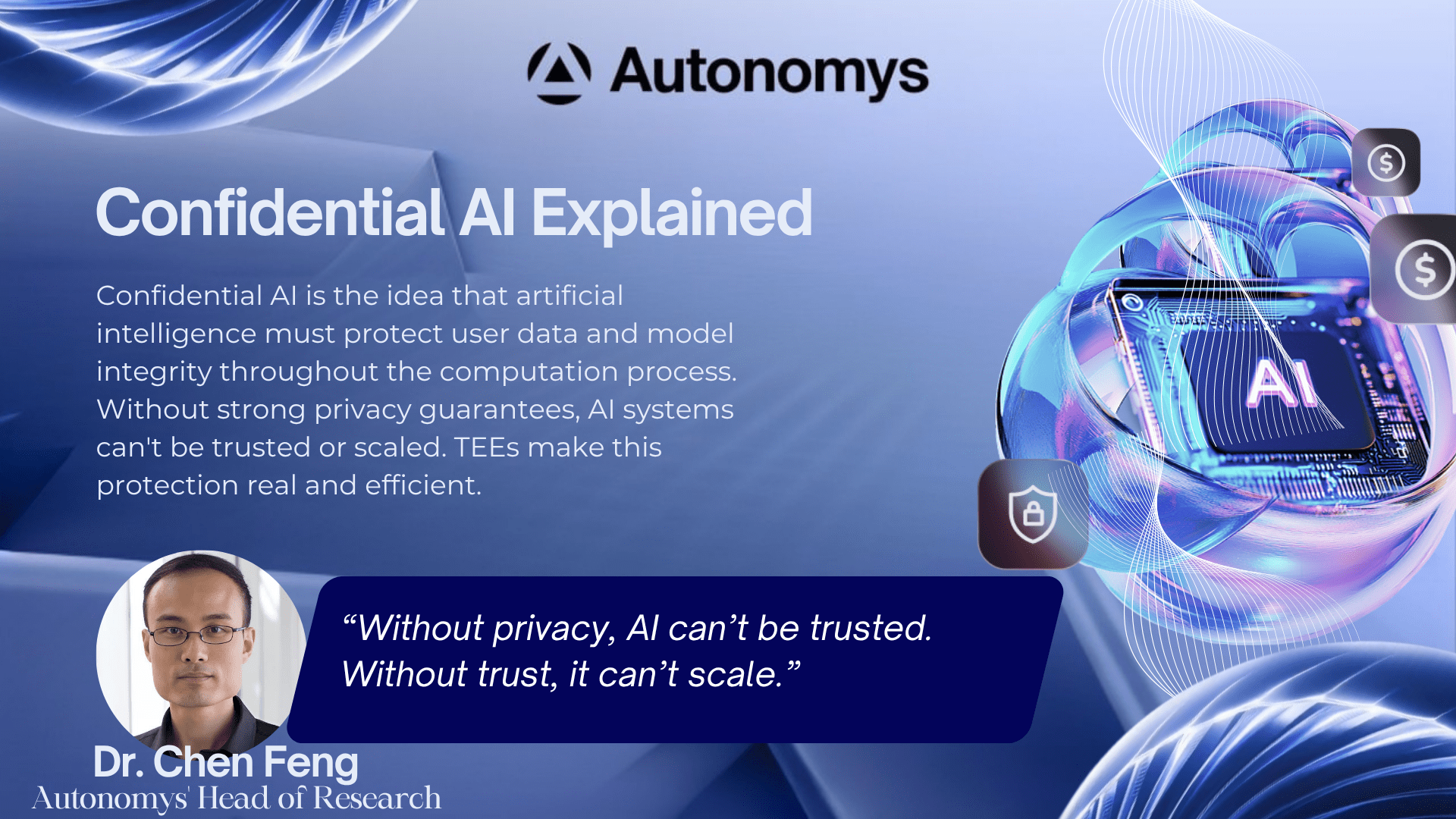Away from all of the #TrumpVsMusk headlines, I found myself drawn to a quieter yet equally pivotal conversation. As someone #SocialMining with @DAO Labs , I was especially intrigued by Dr. Chen Feng, the Head of Research at #AutonomysNetwork insights on the Spilling the TEE podcast, where he explored how Trusted Execution Environments (TEEs) could be the bedrock of a safe, decentralized AI future.

Castles in the Cloud: What Are TEEs?
Dr. Feng paints TEEs as castles in hostile territory, secure enclaves that protect code and data even when the surrounding system can’t be trusted. “If you want to understand TEEs,” he says, “ask what problem they solve. It’s about running software on someone else’s computer, with guarantees.” This metaphor brings to life how TEEs isolate sensitive operations from prying eyes, ensuring confidentiality and integrity.
Yet TEEs face challenges of their own. Hardware dependencies, limited memory, and potential side-channel attacks mean these “castles” aren’t impregnable. Dr. Feng acknowledges, “TEEs aren’t perfect, but they’re the most mature answer we have today.”

TEEs vs. ZKP, MPC, FHE
While Zero-Knowledge Proofs, Multi-Party Computation, and Fully Homomorphic Encryption promise mathematically airtight privacy, they remain orders of magnitude slower. TEEs, by contrast, impose as little as 5% overhead on GPU-intensive AI tasks, enough to deliver real-world performance today.
Defining Confidential AI
Confidential AI means data and model logic remain hidden during execution. For Dr. Feng, it’s non-negotiable: “Without privacy, AI can’t be trusted. Without trust, it can’t scale.” TEEs enable this by ensuring that sensitive inputs and proprietary algorithms never leave their secure enclave.

Autonomys Network: Building on TEEs
Autonomys’ mission is to create a privacy-first, decentralized infrastructure for intelligent agents, and TEEs are central to that vision:
Why TEEs? They deliver “trust without centralization,” aligning with Web3’s ethos of distributing power rather than concentrating it.
Autonomys believes that by pairing TEEs with decentralized coordination tools, assigning TEEs to app operators rather than to each individual agent, they can deliver truly trustworthy and high-performance AI at the scale of billions of agents without any bottlenecks.
For Autonomys, privacy is the very foundation of its vision: every AI user deserves confidentiality, and “if I share my data, I take a risk. That risk should be rewarded. That’s the promise of Web3,” as Dr. Feng reminds us..

Dr. Feng’s insights resonate deeply in today’s crypto landscape, where projects like $BTC , $PEPE and $SOL trending on Binance and leveraging innovative blockchain solutions to support the decentralized AI revolution. Many thanks to DAO Labs for giving us a voice, let’s start building those secure foundations today. And on this note, I will end this article with Dr. Feng’s call to action “We can build a better AI future. One that’s private, decentralized, and fair. But only if we start today.”

